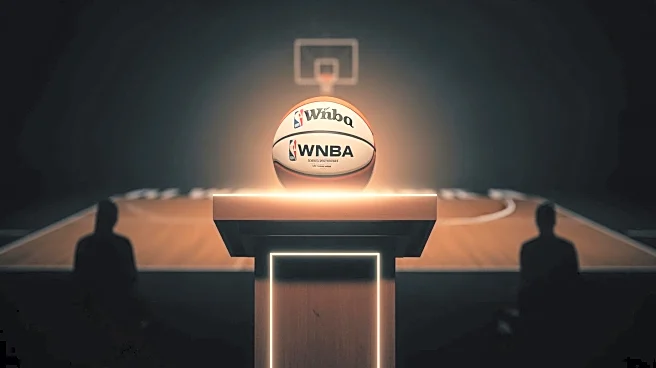What's Happening?
Candace Parker, a former Los Angeles Sparks star, shared her thoughts on WNBA leadership and the recent finals during an episode of 'Post Moves with Candace Parker & Aliyah Boston.' Parker highlighted
the support for Napheesa Collier's challenge to WNBA leadership and noted the lack of defense for Commissioner Cathy Engelbert. Reflecting on the finals, Parker expressed her views as a fan, emphasizing the league's growth and the unexpected teams in the finals. The discussion underscores ongoing conversations about leadership and player advocacy within the WNBA.
Why It's Important?
Parker's comments bring attention to the dynamics between WNBA leadership and players, highlighting the importance of player voices in shaping the league's future. The support for Collier suggests a growing movement among players advocating for change and transparency in leadership. This could lead to shifts in how the league is managed and how players are involved in decision-making processes. The dialogue also reflects broader trends in sports where athletes are increasingly using their platforms to influence organizational policies and practices.
What's Next?
The WNBA may face pressure to address player concerns and improve communication between leadership and athletes. This could result in policy changes or initiatives aimed at enhancing player involvement in league decisions. As players continue to advocate for their interests, the league might explore new strategies to balance leadership authority with player empowerment. The ongoing discussions could also influence other sports leagues to reevaluate their leadership structures and player engagement strategies.
Beyond the Headlines
The conversation around WNBA leadership and player advocacy may have ethical implications, prompting discussions about fairness, transparency, and accountability in sports governance. It could also inspire cultural shifts towards valuing athlete input and fostering collaborative environments in sports organizations. The emphasis on player voices may lead to long-term changes in how sports leagues operate, potentially setting new standards for athlete-league relationships.











